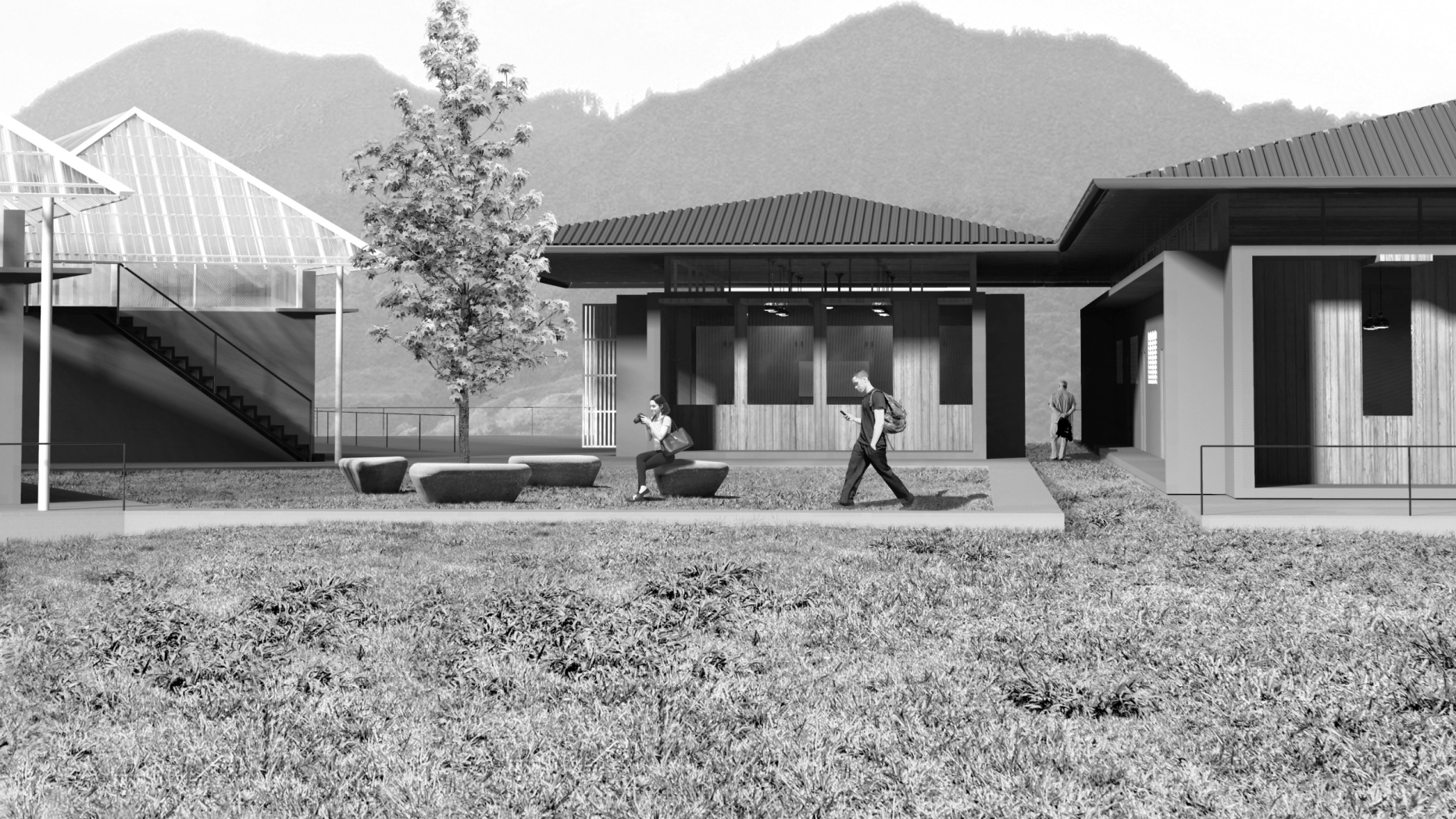Hillary Morales Robles | Tactical Preservation for Climate Emergency: Adaptive Reuse of 20th Century Public Schools in Puerto Rico

Outdoor Classroom View. Ground serves as spatial strategy to group the hosts. Source: Author.
Stuart Weitzman School of Design
102 Meyerson Hall
210 South 34th Street
Philadelphia, PA 19104

Outdoor Classroom View. Ground serves as spatial strategy to group the hosts. Source: Author.
Hillary Morales Robles (MArch, MSHP '22) won the Anthony Nicholas Brady Garvan Award for an Outstanding Thesis.
Abstract: Puerto Rico has experienced three major disasters in the last five years, the hurricanes María and Irma in 2017 and earthquake swarms in the winter of 2020. Post-disaster vulnerabilities studies have concluded that municipalities in rural Puerto Rico present high exposure and risk in the next disaster. Moreover, through various mapping studies, Adjuntas is, in effect, one of the most vulnerable municipalities due to its remoteness. Parallel to this context, thousands of 20th-century public school closures were performed in the last decade due to disinvestment in public infrastructure on the island, leaving schools in complete abandonment, but most importantly, decreasing the number of available emergency shelters locations. This thesis aims to study the typology of vacant 20th-century public schools in Puerto Rico as an opportunity to develop alternative spaces for emergency protection and sustainable equitable revitalization of rural communities. In order to envision a future of rural preservation and self-governance, a three-part model called the plausible futures triangle is applied and evaluates the weight of the past, the push of the present, and the pull of the future.
The first part of the weight of the past studies the history of massive public-school construction and politics of education in Puerto Rico after the American occupation in 1898, its typological evolution in both urban and rural areas, and its potential for adaptive reuse. The second part of the push of the present is an ethnographic architectural study that explores bottom-up approaches of tactical preservation and transformative resistance paradigm carried out by grassroots organizations as first responders in post-disaster scenarios. Lastly, the pull of the future carries out the application of tactical design for school rehabilitation. The case study site is the Washington Irving school in Adjuntas. The 1903 rural school shows the signs of typological evolution and construction during the 20th century. The proposed adaptive reuse framework implements existing grassroots programs and uses for autonomy in disaster emergency and post-disaster reconstruction. The explored design consists of tactics for seismic retrofit and independent superstructures while maintaining the character-defining elements of the historic school typology.
Download Hillary Morales Robles' thesis, “Tactical Preservation for Climate Emergency: Adaptive Reuse of 20th Century Public Schools in Puerto Rico”.
View all Historic Preservation theses on Scholarly Commons.